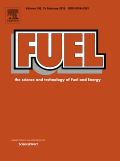 The International Association for Dental Research has retracted a student travel award after discovering that the recipient had previously published the work he used to secure the grant, including in an abstract he presented at the same conference last year.
The International Association for Dental Research has retracted a student travel award after discovering that the recipient had previously published the work he used to secure the grant, including in an abstract he presented at the same conference last year.
The self-plagiarism was uncovered by an anonymous group of students at the Hong Kong University dentistry school, where the student is a PhD student. The unnamed students sent both the IADR and HKU faculty members a color-coded chart showing identical phrases between the 2014 abstract, a 2013 paper published in the Journal of Periodontal Research called “Human umbilical vein endothelial cells synergize osteo/odontogenic differentiation of periodontal ligament stem cells in 3D cell sheets,” and another abstract the authors presented at the 2013 IADR conference.
The paper and both abstracts were written by P.K.C.P. Panduwawala, who lost the travel grant, along with HKU’s former dean of dentistry L.P. Samaranayake; HKU’s associate dean for research L.J. Jin; and C.F. Zhang, part of HKU’s tissue engineering group.
The IADR’s page now lists the winners with a note at the bottom: Continue reading Dentistry student loses travel grant for duplicating his own work
 A group of gastroenterology researchers in Italy has lost their 2010 paper in Internal and Emergency Medicine, the journal of the Italian Society of Internal Medicine, for plagiarizing and duplicate publication.
A group of gastroenterology researchers in Italy has lost their 2010 paper in Internal and Emergency Medicine, the journal of the Italian Society of Internal Medicine, for plagiarizing and duplicate publication.






 A Korean stem cell journal has retracted a paper on a controversial Italian treatment that involves harvesting stem cells from bone marrow and injecting them back into the patient.
A Korean stem cell journal has retracted a paper on a controversial Italian treatment that involves harvesting stem cells from bone marrow and injecting them back into the patient.